Bringing Science Solutions to the World
Lawrence Berkeley National Laboratory (LBNL) is one of the largest multi-disciplinary research laboratories in the United States, and in the world as well. For years, it has been focusing its research efforts on biosciences, computing sciences, physical sciences, energy sciences and technologies. “Bringing science solutions to the world" has been the motto of the lab; the following is a very brief introduction on the ten technologies the lab is working on.
1 Better Batteries
With some of the best battery scientists in the country, Berkeley Lab has already made possible a new family of long-lasting rechargeable batteries. Now efforts are focused on developing advanced batteries for transportation, including a lithium-sulfur battery with twice the specific energy of lithium-ion batteries. The lithium-sulfur battery could find use in mobile applications as well as improve the range of electric vehicles to 300 miles.
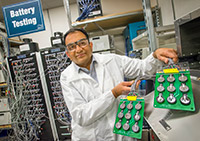
2 Vaccine Fridge
Designed to run for five days even without power, the world’s first portable, solar-powered vaccine refrigerator — fabricated entirely at Berkeley Lab, can be transported by bike or on foot to remote areas of the developing world. The vaccines it carries will combat infectious diseases, such as polio, pertussis and rota virus, that kill millions annually. Both the full sized refrigerator and its smaller "backpack" version are now being prototyped at Berkeley lab and will be field tested in Africa.
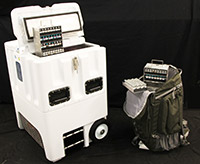
3 Waste Not
Making human waste safe and easy to compost by using a portable DNA extraction kit, developed at Berkeley Lab, is already helping a Haitian non-profit create a nutrient-rich fertilizer. Continuing research on pathogen destruction could soon lead to waterless toilets in one California town and ultimately, may even remove entire cities from the sewage grid.
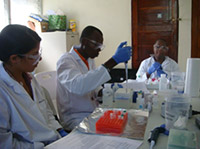
4 Dark Energy
Berkeley Lab scientists hope to shed new light on the mystery of dark energy with DOE’s Dark Energy Spectroscopic Instrument project, otherwise known as DESI. Using a wide view camera with one of the most advanced targeting and spectrographic systems ever created, researchers will be able to collect data on galaxies and quasars across an entire hemisphere of sky.
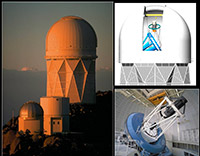
5 New Materials
Exploring and testing how to create new materials with conventional techniques can be time-consuming and yield incomplete results. A Google-like database — developed by Berkeley Lab and MIT and dubbed the Materials Genome Project — hopes to jump start that testing process and accelerate the speed of new material development tenfold by collecting data on the properties of tens of thousands of materials and placing them online, where they can be quickly searched and screened. New materials underlie advances in energy, healthcare and national security.
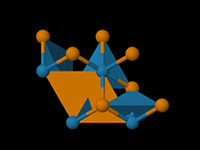
6 DNA Damage-Scanner
Berkeley Lab scientists have devised a new method for DNA damage-scanning that is far faster and more accurate than ever before. A startup, Exogen Biotechnology, has now made the technology widely available; while its immediate goal is to give a readout of an individual’s DNA health, the technology could also provide an immediate assessment of public health impacts related to an environmental event.
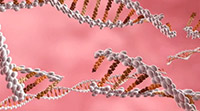
7 E-Whiskers
Electronic whiskers, highly sensitive tactile sensors made from carbon nanotubes and silver nanoparticles, are one of the latest technologies developed by Berkeley Lab nanoscientists. E-whiskers should have a wide range of applications, including advanced robotics, human-machine interfaces and biological and environmental sensors.

8 Micro-Muscle
Human muscles have nothing on a tiny, robotic muscle motor made from vanadium oxide that is a thousand times more powerful and capable of catapulting objects 50 times heavier than itself over a distance five times its length faster than the blink of an eye. Micro-muscle can be seamlessly integrated into miniaturized, multifunctional motors and other microsystems that have a myriad of potential applications.
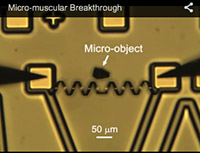
9 Clean Drinking Water
A portable, network enabled system called ScanDrop can now test for drinking water contamination faster and cheaper than ever before. Developed by researchers at Northeastern University in partnership with Berkeley Lab scientists, ScanDrop combines automated microscope control software with cloud-based networking to scan water samples for pathogens and transmit the data remotely — a particular advantage in developing countries, where it is likely to be deployed first.
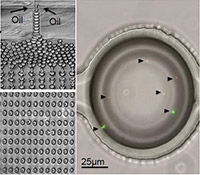
10 Artificial Photosynthesis
Enough solar energy hits Earth in one hour to meet human needs for a year. Berkeley Lab researchers at the Joint Center for Artificial Photosynthesis are continuing to develop technologies for producing fuels that are modeled off the process by which green plants convert sunlight into sugars but are much more efficient.
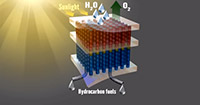
Source:LBNL